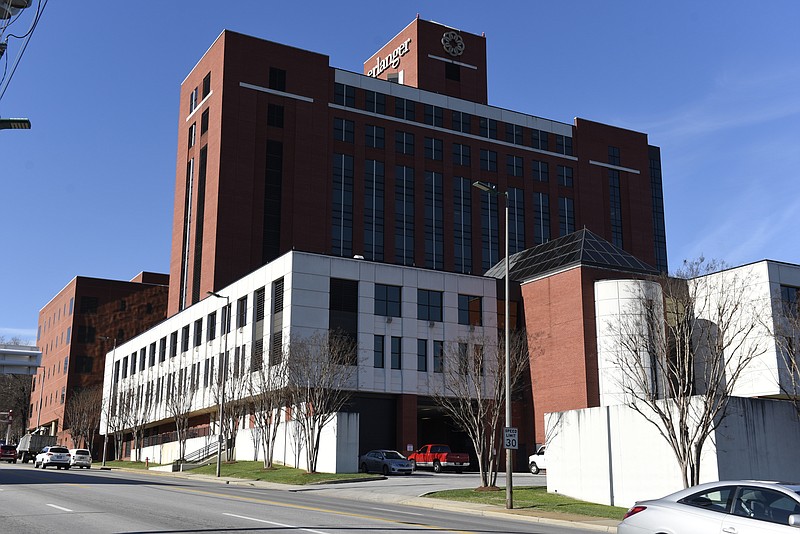What’s next
Erlanger Health System officials will make their case to state health planners for a new $25 million, 88-bed inpatient psychiatric hospital on Wednesday in Nashville. Tennessee Health Services and Development Agency will hear from Erlanger executives and others who support the facility, which will be located at the intersection of North Holtzclaw and Citico avenues.The new hospital would include 24 adult beds, 24 geriatric beds, 22 alcohol and drug treatment beds and 18 beds for child and adolescent services.Health planners also will hear from those who oppose the project, including representatives from Parkridge Valley Child & Adolescent as well as officials from the Council for Alcohol and Drug Abuse Services.To read Erlanger’s Certificate of Need application summary, go to http://tn.gov/assets/entities/hsda/attachments/CN1603-012_Erlanger_Behavioral_Health.pdf
I posed this question to Erlanger hospital leadership a month after I had been assigned to assess the market for behavioral health care. Hospital CEO Kevin Spiegel promptly detailed every point in my research - even though I had not yet shared my findings.
The issues were clear. Our emergency department was backlogged with behavioral health patients who needed beds that already occupied by acutely ill inpatients. Hospitalized patients with co-existing medical and behavioral health conditions had no place to go after discharge because of a lack of facilities accepting referrals of patients with co-existing conditions and/or "self-pay" patients without insurance.
"Access to behavioral health services is a major issue in Tennessee," Mr. Spiegel said. "I am in full support of Erlanger going into the psych business, but this is not our core competency." He told me to "find an expert, find a partner and find the money."
As a health care planner, my job is to help Erlanger sustain its mission, while advancing the health status of the community and region. In recent years, we have addressed the need for behavioral health care services at our community health centers, following federal mandates to provide the underserved with access to needed services. Soon after Erlanger hired a psychiatrist and licensed clinical social worker for the health centers, both professionals were booked solid with a three-month wait for appointments. Though new psychiatrists arrived in the community, our waiting lists did not change. With high demand for their services, the new psychiatrists could pick and choose their clients - and most chose to see only those patients who could pay cash. This did nothing for the underserved, creating a huge disparity in access for those without insurance or cash.
Then came the Affordable Care Act. The ACA included provisions to foster access to behavioral health, requiring insurers to offer benefits for behavioral health similar to those for routine medical care. To assist uninsured community residents in buying health insurance on the exchange, Erlanger employed certified application counselors who have helped hundreds obtain coverage.
As my research progressed, I learned thousands of patients needed assistance. In 2015, more than 1,000 came to Erlanger's emergency departments needing placement for behavioral health issues. Another 10,000 patients were admitted to Erlanger with co-existing medical and behavioral health conditions. At Erlanger Children's Hospital, the story was similar. Moreover, there was a long waiting list at Moccasin Bend.
Erlanger also recognized that many medical conditions seen in its physician offices and emergency departments were rooted in behavioral health challenges. To meet those needs, we recruited more psychiatrists, psychologists and social workers, as well as a chief of behavioral health. But those efforts were not enough to meet the growing needs for behavioral health care in our community.
We discovered that Acadia, a Nashville-based company providing behavioral health around the world, had the resources and the expertise that we needed. Moreover, they had just acquired the behavioral health division from my former employer, Albert Einstein in Philadelphia. Einstein's robust program has a psychiatric residency program, long-term structured residence, psychiatric emergency department and free-standing psychiatric hospital.
Before long, we signed a letter of intent with Acadia and filed a certificate of need with the state to build a free-standing psychiatric hospital that Acadia would fund and manage. We would collaborate on recruitment, training, programming and more. The hospital board's planning committee approved our proposal, which we also presented to Chattanooga Mayor Andy Berke and Hamilton County Mayor Jim Coppinger. Mr. Spiegel is correct: Behavioral health is a major issue in Tennessee. And, yes, Erlanger should be in the psych business.
Joseph M. Winick, FACHE, is senior vice president of Planning, Analytics & Business Development for Erlanger Health System.

